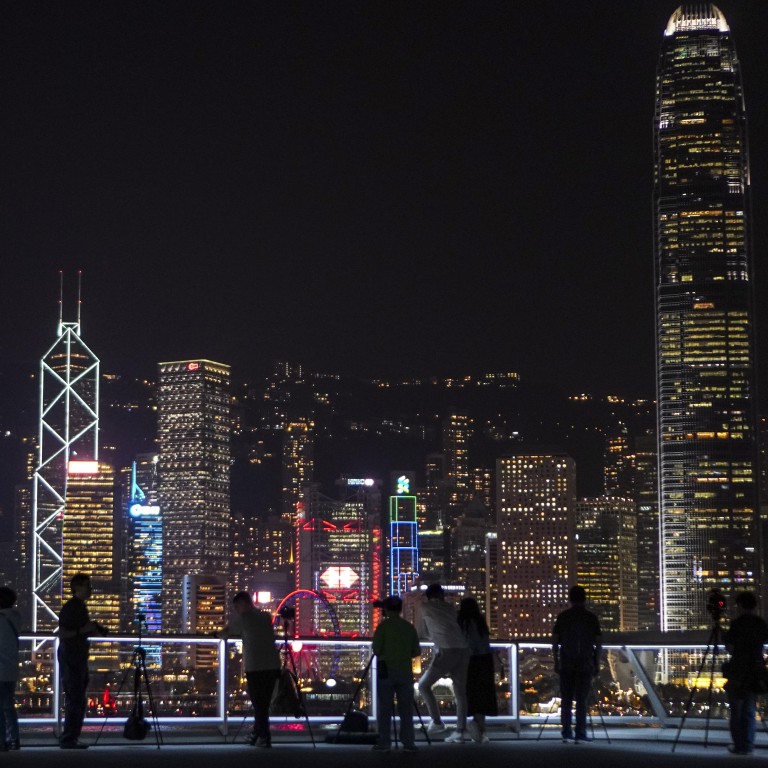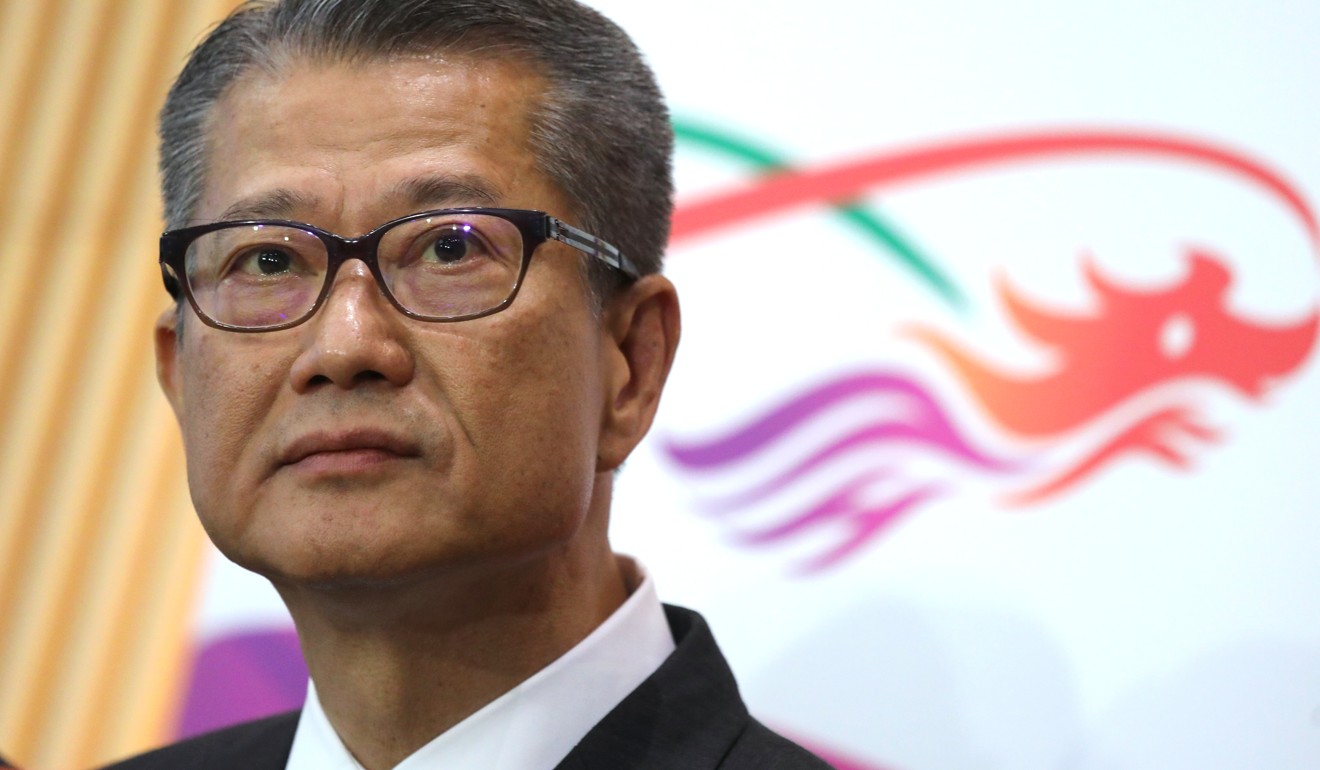
Hong Kong budget deficit will not top 3 per cent of GDP, says finance chief Paul Chan, as city buffeted by US-China trade war and anti-government protests
- Officials estimate shortfall of about HK$80 billion, based on a GDP in the region of HK$2 trillion for the year to March
- Chan says such a deficit – the first in 15 years – is acceptable by international standards
The hole in Hong Kong’s public finances for this year will not exceed 3 per cent of GDP, the treasury minister said on Wednesday, with government spending set to exceed revenue for the first time in 15 years.
Financial Secretary Paul Chan Mo-po estimated the budget deficit would amount to about HK$80 billion (US$10.2 billion), based on a gross domestic product in the region of HK$2 trillion for the year to the end of March.
His forecast was underlined by pessimism among industry experts.
Chan said a deficit of that size, a reversal from the government’s previous forecast of a HK$16.8 billion surplus, was acceptable by international standards.
The city has been reeling from a double blow of the US-China trade war and ongoing social turmoil. While the tariff spat has been running since before 2019, anti-government protests have added to the economic headwinds since June.

Chan earlier downgraded the GDP forecast from 0-1 per cent growth in 2019 to a contraction of 1.3 per cent – the first economic shrinkage in a decade – on the back of weakened exports, slumping tourism numbers, shrinking retail sales and rising unemployment.
But the International Monetary Fund warned last month that GDP could decline by as much as 1.9 per cent in 2019.
The government has since August splashed HK$25 billion on measures intended to ease the economic woes, which were unexpected when it compiled its surplus forecast early last year.
In the run-up to his budget speech, expected in February, Chan hinted on Wednesday that cash giveaways for the general public were unlikely.
Carrie Lam insists she will remain in office to tackle challenges in Hong Kong
“There are suggestions the government should distribute HK$10,000 to each person, this will easily cost HK$60 billion to HK$70 billion. The ultimate sum could exceed HK$100 billion if the estimated deficit is taken into consideration,” he said. “There are many credit-rating agencies and think tanks scrutinising our ranking. If our ranking is affected negatively, there will be implications for corporate borrowing.”
He said the city’s foreign currency reserves, which totalled US$441.3 billion by the end of December, were strong enough to guard against overseas turmoil.
“We have closely monitored the stock market and foreign exchanges, futures and derivatives trading and haven’t seen any abnormal movements,” he said.
Still, tourism and retail industry experts expected the lacklustre performance to linger in 2020.
The gradual restoration of social stability locally, as well as smooth progress of the Sino-US trade negotiations, will help support the slow recovery of the consumer market in Hong Kong
Hong Kong Retail Management Association chairwoman Annie Tse Yau On-yee said retail sales in the first half of this year were projected to plummet sharply year on year, and the percentage decrease could be a double-digit figure due to a high base of comparison from early 2019.
Tse expected business performance in January to be similar to December – when she observed a slight improvement – thanks to a brief boost brought by the Lunar New Year holiday, from January 25 to 28.
On a more optimistic note, international advisory firm PwC said the slump in the luxury market was likely to have bottomed out in 2019, while sales of gold and jewellery products were expected to surge during Lunar New Year because, according to Chinese tradition, the Year of the Rat is a good time for marriage.
Michael Cheng Woon-yin, PwC’s Asia Pacific, mainland China and Hong Kong consumer markets leader, cautioned that the overall retail business in January would still be worse than in previous years. But he said the performance would still be better than the previous two months.
He predicted overall 2020 retail sales would fall about 2.5 per cent year on year, to HK$420 billion. In the first 11 months of 2019, retail sales were down 11.4 per cent year on year, according to the latest government statistics.
PwC’s projections took into account wider challenges such as a slowing Chinese economy and volatility in global markets against the backdrop of the US presidential election in November, he said.
“The gradual restoration of social stability locally, as well as smooth progress of the Sino-US trade negotiations, will help support the slow recovery of the consumer market in Hong Kong,” he said.
Protest-hit Hong Kong’s economy shrank 1.9 per cent, IMF forecasts
On Hong Kong tourism, Travel Industry Council chairman Jason Wong Chun-tat said the number of mainland tour groups coming to the city was down 90 per cent in recent months and the numbers for January had not improved much. Bookings for outbound travel around Lunar New Year were 20 to 30 per cent down on 2019, he added.
With social tensions eased slightly in recent months, Wong said he hoped more tourists could be attracted to the city by discount offers and promotional efforts.
Bank of China (Hong Kong)’s chief economist Zhihuan E said there was still a chance the city’s economy would stabilise or even bounce back slightly this year, if the unrest could be resolved.


